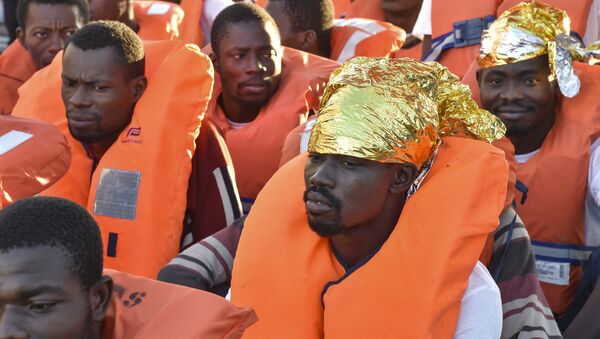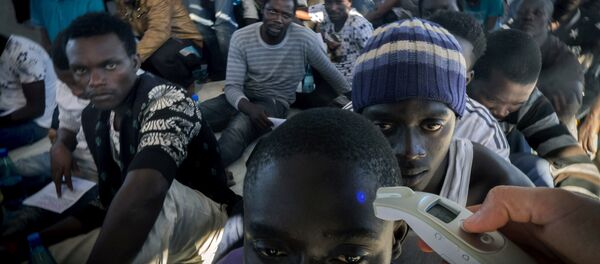The European Union's border agency Frontex accused NGOs of adding problems to the migration crisis. The government department issued a statement that blamed Medecins Sans Frontieres (MSF) and several other NGOs for colluding with human smugglers and being responsible for more migrants dying at sea.
Frontex executive director Fabrice Leggeri said that NGO vessels in Libyan waters had contributed to more traffickers forcing migrants onto unseaworthy boats, which have insufficient supplies and fuel.
In addition to this, a report appeared in the Financial Times, which seemed to support the claims that NGOs were in fact helping people smugglers.
AZG human trafficking:
— Dedugeee (@Deduge1) March 26, 2017
NGOs are smuggling immigrants into Europe on an industrial scale https://t.co/vJDnv23RYm
The report outlined that a small fiberglass boat displaying a Libyan flag approached one of the NGO vessels — Minden — and transferred two Libyan citizens to the EU vessel, after claiming they were migrants.
"The NGO vessel took them aboard and let the Libyan boat leave the area. After the debriefing activities, the migrants stated that the crew aboard the small Libyan boat were the people smugglers. This is the first reported case where the criminal networks directly approached an EU vessel and smuggled the migrants directly into Europe using the NGO vessel," the report outlines.
Shoddy evidence on Frontex's part attempting to link NGOs in the #Mediterranean to people smuggling https://t.co/3Fg4nXz0M9 #migration
— Sima Diab (@SimaDiab) April 2, 2017
However experts have claimed that the allegations made by Frontex have not been sourced correctly and have various inaccuracies.
The report didn't name any particular charities, and it quickly started to show holes; within a week, the paper issued a correction and Frontex distanced itself from the accusations.
In February, the number of migrants reaching Italian shores more than doubled from a year ago to 9000 https://t.co/VhXfqGLOrX
— Frontex (@Frontex) March 15, 2017
However these allegations are apparently untrue, according to sources who spoke to The Intercept.
The report from Frontex which the FT story was based upon, has video evidence and interviews with rescue workers and it undermines the allegations made of collusion.
In the report, Frontex does say that people were smuggled to Europe via an NGO ship. But the report provides little evidence for the allegation, and what it does contain is contradicted by the rescue crew.
Ruben Neugebauer, a source from Sea-Watch, an NGO that helps to rescue refugees and migrants at sea, has said that if a boat claims to be in distress, then they and other NGOs are obliged to help, whether they are smugglers or not.
Neugebauer, as well as other sources believe that these claims made by Frontex are a deliberate attempt to try and jeopardize the efforts made by nonprofits.
"The accusation that comes from Frontex, it's no coincidence, we think it's the start of a new strategy to criminalize NGOs, and to make a public picture of NGOs cooperating with smugglers," Mr. Neugenbauer said in a recent interview.
Frontex has publicly put forward the position that rescue patrols near the Libyan coast encourage the business of smuggling, but a spokesperson for the agency denied that it had accused nonprofits of working with smugglers.
These allegations from Frontex and the denial of involvement in people smuggling by MSF and other NGOs appear to be highlighting that there is a general shift in how search and rescue operations are carried out, with European governments appearing to be in more of a rush to secure their borders.
How the EU and NGOs work together to rescue refugees is something that remains unclear, however accusations of NGOs being involved in people smuggling is an issue that is firmly denied by nonprofits.



